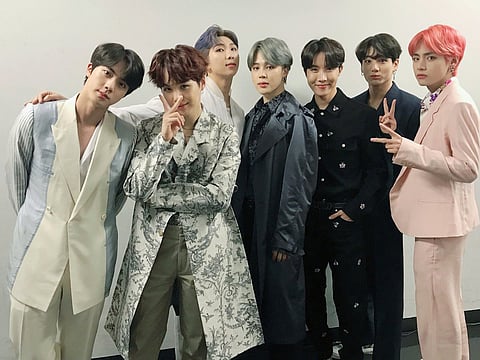BTS’ success story gets spotlight in Harvard paper
Group’s founder Bang Si-hyuk explains relationship between the company and the members

Proving again that they’re not just your average music group, South Korea’s BTS was recently written about in a Harvard Business School case study that gave insight into the way they work.
Big Hit Entertainment Chairman and founder of BTS Bang Si-hyuk explained in the report that the members are given more freedom than other K-Pop groups in an attempt to find a “more balanced relationship with his superstar act”.
Titled ‘Big Hit Entertainment and Blockbuster Band BTS: K-Pop Goes Global’ and written by Anita Elberse and Lizzy Woodham, the report that released in June delves into the rise of the septet on a global scale.
In what could be seen as a show of goodwill between the artists and their management, when it was time for the members — RM, Jin, Suga, J-Hope, Jimin, V and Jungkook — to renew their seven-year contracts in 2018, Bang recalls that it wasn’t a fraught affair.
“We talked about whether we would be able to continue this success for another seven years. The members said, ‘We will give you seven more years, but give us the acknowledgement that we deserve for the successes that we have achieved, and reflect it in the contract,’” Bang said, according to a report in Korea Herald.
If the Harvard report is to be believed, BTS and Big Hit Entertainment didn’t even discuss money during the contract negotiations.
Also Read: K-Pop’s BTS breaks Adele’s iTunes record
Also Read: What UAE fans of K-Pop are listening to...
As of 2019, BTS are reportedly worth more than $4.65 billion (Dh17 billion) to South Korea’s economy each year.
The 22-page report Harvard Business School case study, available for purchase online, also discusses if BTS can maintain its massive popularity and whether Big Hit Entertainment’s model will influence other such companies.









